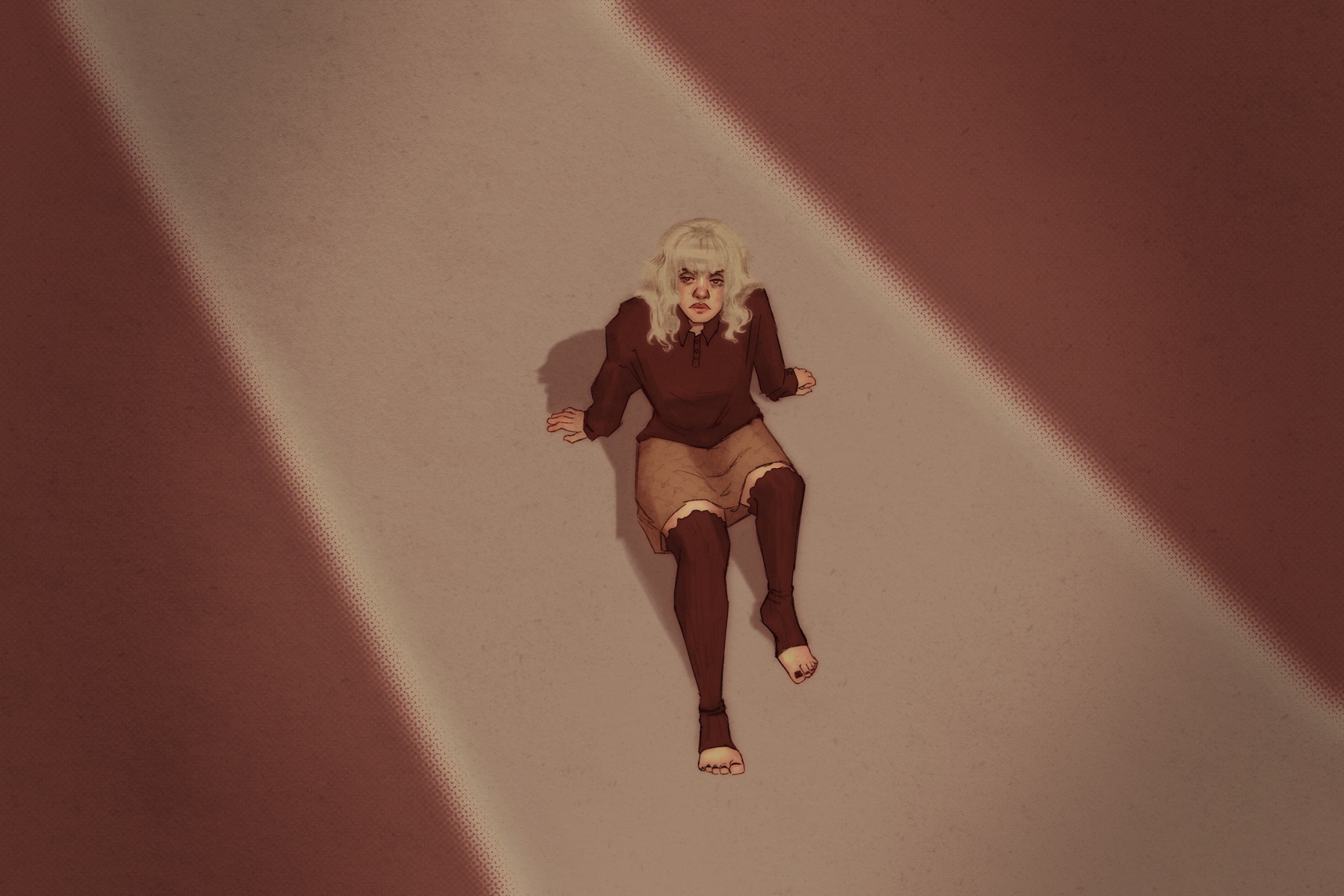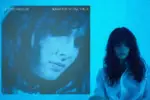“Happier Than Ever” would not exist without Billie Eilish’s success during the golden year of 2019. Though it feels like a lifetime ago, it was merely two years prior that Eilish went down in music history and became a household name. Her debut album, “When We All Fall Asleep: Where Do We Go?,” cemented her place on a precariously high pedestal, earning her six Grammy awards and the top-artist spotlight on music-streaming platforms everywhere, including my own Spotify.
It began while I was doing what I do best — procrastinating. My ears were plugged tight with headphones, cleansing myself of stress by disassociating from the world around me. As I washed dishes in the public kitchen of my college dorm, the omnipotent gods of the Spotify airways decided to show me something new. This wonderful anomaly came in the form of a pounding bass line and a mysterious, angelic voice that chilled me to my very core. It was as though I was transported into a liminal space by the music.
The artist, unbeknownst to me, would become my strange addiction. She was simultaneously bold and soft around the edges, shoveling spiders into her mouth and crying puddles of blue-black ink. At only 18, she was fracturing the lines of music and fashion alongside her brother-turned-producer Finneas.
I was eager to return to her world again and again. Without Billie Eilish, my freshman year would have been drastically dull. She became my go-to soundtrack to daily life, as she did for countless other listeners worldwide.
But once someone reaches the top, where else is there to go? That’s where Eilish’s sophomore album, “Happier Than Ever,” comes in, amid an impossibly large bounty of expectations. However, the new record manages to prove that there are always alternate avenues to take.
“Happier Than Ever” is influenced by a variety of musical genres, from samba to oldies. It features more explicit lyrical content than any of Eilish’s previous work. These two artistic leaps mingle on the album and ultimately create an unexpected mix of ear candy and an eclectic listening experience.
On my first listen, however, nothing was more unexpected to me than my own sentiments for the album. I somehow hated “Happier Than Ever.”
The album disoriented me in more ways than one. I was thrown off by a lack of cohesion in the incorporation of different sounds. The abrupt transitions between ballads, upbeat rhythms and techno-inspired spunk felt unnatural. The wide range of subject matter Eilish sang of on the album just made it feel saturated, unpleasantly unbalanced and spread too thin. While this worked on her previous album, an exploration of the less emotional areas of herself, it felt strange on a more matured sophomore project. Sexually explicit numbers like “Oxytocin” made me cringe in discomfort knowing that she wrote and recorded them alongside her brother.
Right from the beginning, “Getting Older” felt lukewarm in its attempt to communicate nostalgic melancholy. Although I related heavily to the lyric, “Things I once enjoyed/ just keep me employed now,” Eilish’s self-deprecation felt half-hearted. Although she meditates on her tendency to crave pity from others, she simultaneously boasts of aging gracefully. It felt like Eilish delivered her own narrative arc in one fell swoop instead of a slow-drip across the 14 tracks. I couldn’t help but compare the track to a lackluster version of Olivia Rodrigo’s opening “SOUR” anthem, “brutal.”
https://www.instagram.com/p/CR9RvHvBsha/
My irritation only grew with the chaotic dog-growling sound bites and endless dead-air-filling of “I Didn’t Change My Number.” Tracks like “Lost Cause” and “NDA” felt underwhelming, which is reflected in their failure to reach the commercial success expected from them as pre-released singles. Then there was my disappointment, which I’m ashamed to admit, in the title track, “Happier Than Ever,” which abruptly changes from ukulele ballad to punk hit in a way that initially failed to impress me.
I was guilty about my feelings. Eilish herself even admitted in an Instagram statement released along with the album that she was nervous to release this project and share intimate parts of herself with her fans. As a creative writing student, I knew exactly how she felt to be exposing her sacred thoughts to the world for slander. Was I being too judgmental? Had I grown too distant from the 18-year-old who revered Eilish as a prophet? Or was my hatred really just a manifestation of something else?
My criticism of Eilish’s work seems to stem from my newfound perception of the artist. As her fame grew, there was something of a cockiness and attitude-driven persona that made her less appealing and mysterious to me. Her persona had turned into something that felt damaging rather than empowering as the rumors around her piled up.
It felt wrong to praise a painfully white woman who continued to popularize the use of African American Vernacular English, or a “blaccent.” Eilish appeared to appropriate Black culture through her speaking voice. In an Instagram live video that resurfaced, Eilish’s speaking voice was even questioned by her own brother, who said she was talking, “nothing like herself.” In the video, Eilish promptly denied putting on a voice for the camera. However, the damage was done. I, as well as many others, were growing repulsed by Eilish’s false and stereotyping behaviors.
The “Happier Than Ever” era ushered in a new aesthetic for the artist, in more ways than one. Eilish changed her formerly black and green hair into a bottled, platinum blonde. She traded her edgy dark aesthetic for muted neutrals. To my tuned, critical ears, her blaccent appeared to fade more and more into a seemingly more natural speaking voice.
Another Eilish trademark was then done away with. Eilish’s choice of clothing was a symbol of her desire not to be sexualized by the media. Although she was criticized for her decision to wear oversized attire, Eilish remained firm in normalizing something long neglected by the music industry — female pop stars should not need to sexualize themselves to be successful.
In the Eilish-obsessed world of 2019, the artist featured in a powerful Calvin Klein advertisement where she opened up about her clothing as a reflection on her own intense struggle with body image, something many of her young fans could relate to. She became an icon of sorts and a beacon of hope for bodily acceptance on one’s own terms.
In a viral Vogue shoot leading up to the release of “Happier Than Ever,” Eilish shed her layers and posed in custom-made lingerie sets in a wonderful mark of her budding maturity, bodily acceptance and claiming of autonomy. She further pushed this sentiment in a strangely weighed-down spoken-word interlude, “Not My Responsibility,” on the album, lashing back at critics for mocking her without caring about her own sensitivity.
Empowering as these actions were, Eilish seemingly weaponized the newfound comfort in her own skin after the Vogue pictures were released to Instagram. After the release of “NDA” and leading up to the album, fans began to talk of Eilish’s “flop era,” claiming that Eilish had fallen from her impossibly high castle without even hearing the album’s full story.
This was a far fall for the singer, who responded to the “flop era” debate in a TikTok captioned, “eat my dust my t—- are bigger than yours.”
After her legacy of making it cool not to sexualize oneself as a teenage girl, something about this comment was unsavory. It seemed to suggest that since she was no longer a minor, she no longer cared about going against the beauty standards she once did, even in the jokey nature of TikTok.
Sure, Eilish had every right to speak out against critics of her song; there is undeniable power in an uncensored voice. But her own song “Male Fantasy” would have proved the power of her sexual liberation on its own, honestly discussing Eilish’s consumption of pornography in moments of pained fragility and not shying away from discussions of female sexuality.
Maybe her statement on TikTok just proves that I, as well as other critics, need to allow Eilish to change in whatever ways she wants. Perhaps I was stuck viewing Eilish perpetually as the 17-year-old she was when I discovered her, which is why her singing of doing “bad things” to her partner in a hotel room on the album gave me an inexplicable pause.
However, the list of reasons to feel unfavorably toward the attitude-possessed Eilish only grew and grew leading up to “Happier Than Ever” being released.
Eilish’s new boyfriend, Matthew Tyler Vorce, has been accused of controversial Facebook posts that boost homophobia, fat-shaming and racism. Videos of Eilish resurfaced of her mocking an Asian accent and mouthing an anti-Asian slur. She later apologized on social media, claiming she had no idea what the word meant and wasn’t trying to cause offense by her use of a voice.
The perception-obsessed internet managed to influence my whole Eilish listening experience — all based on speculation.
I was thus determined to come around to Eilish’s new album and change my own unfair, negative opinion. Eilish contains multitudes as an artist and so can I as a critic.
Eilish is young and thus liable to make public mistakes. Despite it all, she continues to prove her talent and creative range. Her vocal range proves she is one of the more talented singers of this generation, a fact I often forget in my familiarity with her talent.
It was a complicated journey, but eventually, I came around to appreciating her artistry and creative bounds on “Happier Than Ever.” After I returned to the tracks I initially deemed unnecessary, I truly started listening to what Eilish had to say behind it all.
Listening to the meticulous love ballads on the album over and over, I found my two favorite songs. “Hailey’s Comet” and “Goldwing” made me realize that the album is a powerful meditation on a young girl finding love and validation in all the wrong places. Eilish is a young and victimized woman. In her past romance, she was groomed by an older man. But the public eye has also abused her. Her story is filled with tragic Hollywood tales as old as time.
My freshman-year reverence could not last forever. But I was the bad guy, not allowing Eilish’s music in, judging her for her past actions as a teenage girl. I made Eilish unreachable, even to herself. Eilish is remarkably human: She should be recognized as such by her fans, who by no means should let Eilish evade accountability for her past but would also do well to remember her feelings and humanity at the center of it all.

















